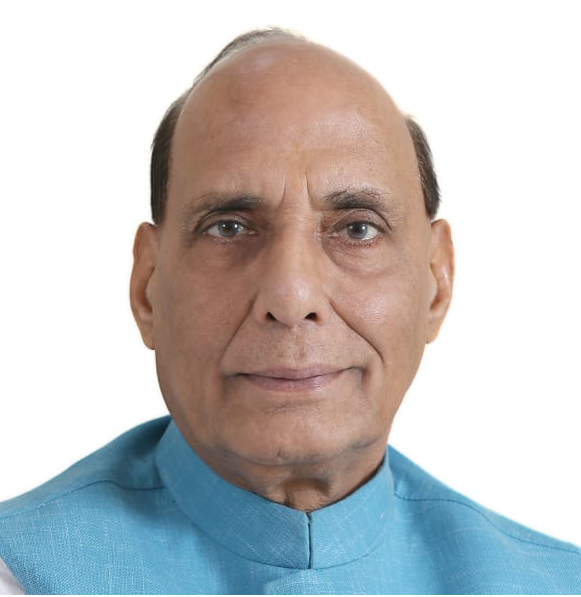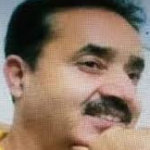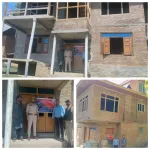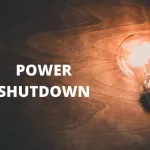Terrorism is a scourge on humanity, an anathema to cherished values of a civilised society; it thrives on misguided notions of revolution, martyrdom, and a romanticised view of violence. The assertion that “one man’s freedom fighter is another man’s terrorist” is a dangerous misnomer—true freedom can never be built on fear and bloodshed.
The currency of terrorism and terrorists is fear. Yet, even in spreading fear, they have failed to instill any sense of pessimism. And India is testimony to this fact. Whether it is 26/11 or the 2001 Indian Parliament attack or the recent Pahalgam attack, India stands taller, stronger, and more resolute than ever.
In the face of a united India, terrorism, both in its warped ideology and twisted utility, is destined to fail on its own. It’s very existence—even for a day—challenges our collective conscience and commitment to peace. All peace-loving nations and individuals need to come together to eradicate this menace once and for all.
India has shown how this can be done.
For decades, we have been a victim of state-sponsored cross-border terrorism originating from Pakistan. The recent Pahalgam attack was a brutal and failed attempt to fracture Indian unity and instill fear among its people. This was evident in the manner in which terrorists inquired about the religion of tourists before killing them. A similar attempt to threaten Indian unity emerged when Pakistan utilised drones and artillery to attack various religious sites belonging to different faiths.
No religion can sanction such dastardly acts. Terrorists strategically misuse and invoke religion to justify their barbaric acts. By hiding behind the veil of religion, terrorists seriously undermine the faith they claim and pretend to uphold. This misuse of religion is not accidental or impulsive; it is a deliberate tactic, a carefully crafted strategy to lend false legitimacy to atrocities.
India has made it clear that we have a zero-tolerance policy towards terrorism. Talks and terrorism cannot go hand in hand. Any future dialogue with Pakistan will focus solely on terrorism and Pakistan-occupied Kashmir. Also, if Pakistan is serious, it must hand over UN-designated terrorists like Hafiz Saeed and Masood Azhar to ensure justice.
For a long time, we have reacted to terrorist acts while searching for a long-term vision and strategy. Our armed forces were earlier only allowed to engage in defensive action. With Surgical Strikes (2016), Balakot Strikes (2019), and now Operation Sindoor (2025), India has made a fundamental reappraisal in its policy towards the terrorists and their progenitors in Pakistan.
Now, we understand that moral and political disapproval, along with a defensive posture, are not enough. It is now our policy that we will proactively eradicate terrorists wherever they are. Any act of terror is now considered an act of war.
If there is a terrorist attack on India, a befitting reply will be given without differentiating between the government sponsoring terrorism and the terrorists themselves. If Pakistan is unable to rein in terrorists operating from its soil, it will have to pay the price for its inability.
At the 3rd ‘No Money for Terror’ Ministerial Conference on Counter-Terrorism Financing in New Delhi, Prime Minister Narendra Modi has categorically affirmed: “We consider that even a single attack is one too many and even a single life lost is one too many. So, we will not rest till terrorism is uprooted.”
With Operation Sindoor, the Indian government and armed forces demonstrated to the entire world that we are committed to uprooting terrorism. In a ‘focused, measured and non-escalatory’ operation, we targeted terrorist infrastructure in Pakistan and Pakistan-occupied Jammu and Kashmir, from which terrorist attacks against India have been orchestrated and directed.
We know that military action against terrorists is necessary, but not sufficient. It is the foundations of the terrorist infrastructure that need to be destroyed. Since Pakistan uses terrorism as a tool, India has successfully isolated Pakistan diplomatically and economically.
We have kept the Indus Water Treaty ‘in abeyance’ until Pakistan credibly and permanently renounces its support for cross-border terrorism. This decision carries significant implications for Pakistan, which relies on the Indus River system for 80% of its 16 million hectares of agricultural land and 93% of its overall water usage, and supports 237 million people and contributes one-fourth of Pakistan’s GDP.
Terrorism is not just an Indian problem; it is a global problem. According to the Global Terrorism Index (GTI), the number of countries experiencing terrorist incidents has increased over the years. To effectively dismantle terrorist networks, combat radicalisation, and ensure a safer future for generations to come, we need to move beyond piecemeal efforts. Instead, we should embrace a principled, comprehensive, consistent, and coordinated global strategy. This involves five key measures.
First, define the term ‘terrorism’. There is no consensus yet on what constitutes terrorism. The closest we have come to defining terrorism is in the Comprehensive Convention against International Terrorism in the UN, based on an Indian proposal. Semantic issues must not limit the battle against terrorism; we need a widely accepted definition required for investigating or prosecuting terrorist acts, or ensuring their extradition from abroad.
Second, we need to freeze the finances of not only terrorist organisations but also states sponsoring terrorism. Multilateral agencies and donor countries must recognise that Pakistan has a history of misusing bailout packages and uses debt financing for state-sponsored cross-border terrorism.
As India pointed out in a statement to the IMF, “rewarding continued sponsorship of cross-border terrorism sends a dangerous message to the global community, exposes funding agencies and donors to reputational risks, and makes a mockery of global values.”
There is no doubt that funds given to Pakistan end up with the military-terror complex working towards an unstable world. Hence, Pakistan needs to be again grey listed by FATF, and any funding needs to be cut off till the time Pakistan credibly and irrevocably renounces its terror operations. The same standard should be used against other countries harbouring terrorists in their territory.
Third, something that was known for a long time but has become more evident is that state and non-state actors are two sides of the same coin in Pakistan. This was apparent recently when designated terrorists were accorded funerals with state honours attended by military officials in uniforms.
In Pakistan, there is a persistent threat that atomic weapons may end up with non-state actors. The international community must acknowledge this serious risk, and Pakistan’s nuclear weapons should be placed under the supervision of the International Atomic Energy Agency (IAEA).
Fourth, warfare by proxy is a dangerous menace. There is a need to call out the countries that use surrogates to destabilise their neighbourhood. The scope and severity of reactions to terrorist acts cannot depend on where they occur or the nationality of the victims. When countries pick and choose which acts of terrorism to condemn based on convenience or interests, it weakens the collective response, emboldens perpetrators, and provides tacit approval to such acts.
Fifth, terrorist safe havens in Pakistan have worldwide implications due to both their international reach and their adoption of emerging technologies such as artificial intelligence, autonomous systems, augmented reality, biotechnology, and nanotechnology. This is why global cooperation is essential to address the threats posed by terrorists exploiting these vulnerabilities. It is time for all countries to come together and sign the ‘Comprehensive Convention against International Terrorism’.
Advocating such a treaty, Prime Minister Atal Bihari Vajpayee, in the aftermath of the 9/11 attacks, said in the UN General Assembly, “We must firmly rebuff any ideological, political or religious justification for terrorism.” Quoting Rabindranath Tagore, he went on to say, “From now onward, the anxiety that each country has for its own safety must embrace the welfare of the whole world.”
India remains steadfast in its quest to eliminate terrorism in all its manifestations.
We urge all peace-loving nations to join us.
(The Author is Union Minister of Defence, Govt of India. Courtesy: PIB)








